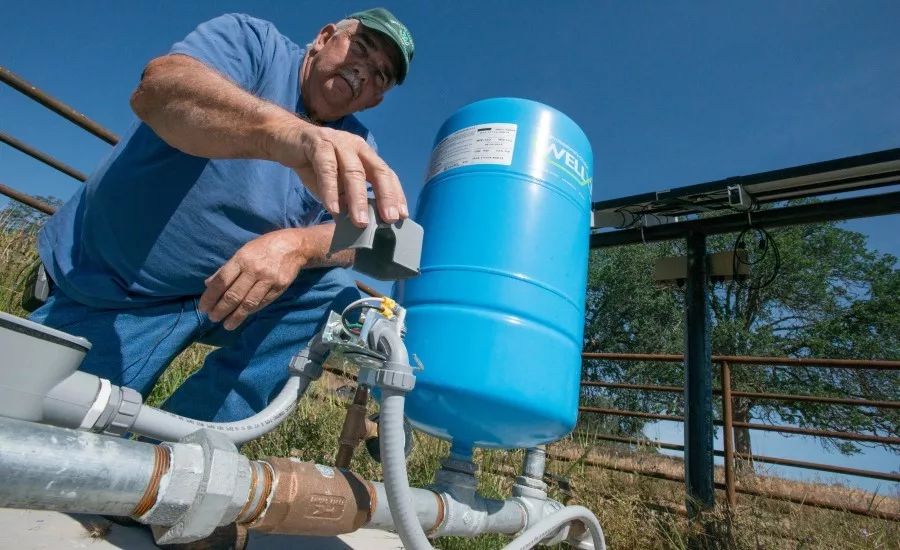Water Well Innovations: Look 20 Years into Groundwater’s Future
Bigger Wells, More Treatment, Potential Changes

A farm operation or entire housing development could depend on your ability to keep innovating.
Source: USDA
Let’s indulge in a little sci-fi for a moment. What does the water well industry look like in 20 years? I’m going to predict the industry in 20 years will be, um, interesting. First, three bullets for the next two decades, then a bit about how each affects the industry and the contractors working in it.
- Groundwater becomes harder to get.
- The relative difficulty drives up the cost (and perhaps risk).
- The groundwater we do get can be of lower quality.
A recent The New York Times survey put together a massive, 80,000 well database. Well after well show an overall, decades-long decline in groundwater levels. That means more service work. Setting pumps deeper where possible. Bigger, more powerful pumping and control systems. Bigger holes.
That slides nicely into the second point: Wells to get deeper water cost more to install. When it comes to that point, they’re more valuable to the client too. Maybe a shallower well failed. Maybe a shallower well that should have produced didn’t. A farm or housing project’s success may depend on the work done by drillers in the field.
This has pros and cons. Bigger jobs often have bigger rewards. Bigger jobs often put contractors through more hoops, from regulatory to insurance, too. Clients, whether you’re the prime contractor or plugging into a bigger project, want to know you can handle the execution and manage the risk involved. Clients may also have specific asks: specifying a certain drilling method, fluids type or PVC casing.
My third point dovetails with a recent report from the U.S. Geological Survey. The USGS collated data from 2,200 wells, with detailed reporting on each every 10 years from 1988-2021. More than half the sites reported higher salinity levels over time. Potential reasons differ. In the Northeast and Midcontinent, we can consider heavier road salt use in the winter. In the West, we might talk about irrigation. Regardless of the source, USGS sees higher salinity in many areas.
(And that’s before we even talk about forever chemicals like PFAS …)
If this continues, what does it mean for groundwater professionals? People aren’t going to stop needing water. However, the folks providing groundwater need to:
- Prepare to do bigger holes and bigger projects.
- Ensure durable, corrosion-resistant materials.
- Become expert resources in water quality and treatment.
The stretch to do bigger projects and diversify into related offerings are at the heart of innovating in the water well space. What the water well industry looks like in 20 years is really up to the people in it now. Are you sharing your knowledge and innovations to propagate good decisions about materials and methods across the industry? Are you talking up good manufacturers and supply houses so they continue to be around for your industry mentees?
The challenges for water supply and demand will only get more complicated as we try to support more and more people on the planet. What remains simple is the groundwater industry’s commitment to being part of the solution to these challenges for generations to come.
Looking for a reprint of this article?
From high-res PDFs to custom plaques, order your copy today!



